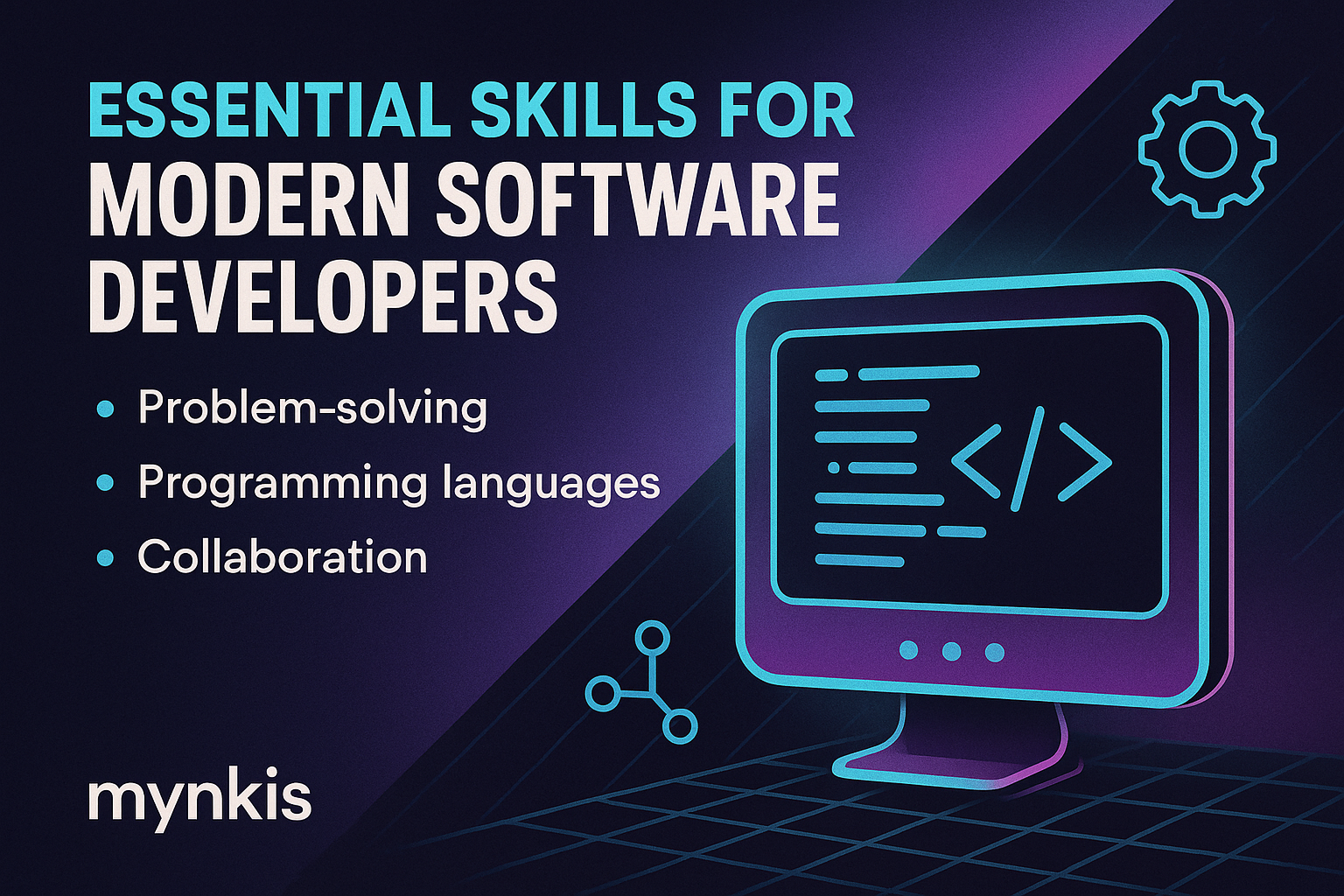Schedule a Demo
In the realm of modern business, software development isn't just a job—it's the backbone of innovation. You see, every app, website, and tool that powers a company's operations comes from a developer's mind. They're the architects of the digital age, turning complex ideas into tangible, usable products. As a seasoned software developer, I've witnessed firsthand how these skills can elevate an enterprise from good to great.
At the core of software development lies coding prowess. Developers need to be fluent in languages like Python, Java, or JavaScript. But it's not just about memorizing syntax; it's about understanding the intricacies of how different languages work together to build efficient, scalable solutions. For example, when crafting enterprise web solutions, the choice between Python and JavaScript can significantly impact the project's outcome, depending on the desired balance between performance and interactivity.
Every software project comes with its set of challenges. Whether it's debugging an elusive error or optimizing a piece of code for better performance, problem-solving is the art of a developer. I recall working on a custom software development project for a healthcare client where we had to manage a vast array of sensitive data. The solution we devised not only improved data handling but also enhanced user experience by 30%, showcasing how problem-solving is integral to delivering impactful enterprise web solutions.
Software development often involves working in teams. Being able to communicate effectively with team members, stakeholders, and clients is crucial. It's not just about explaining code but also translating technical concepts into language that everyone can understand. I've seen projects soar when developers take the time to sit down with the marketing team or c-level executives to explain the possibilities of custom software development. It creates a synergy that propels the project forward.
The tech world moves at breakneck speed. New frameworks, languages, and tools emerge almost daily. Developers must stay adaptable, willing to learn, and ready to incorporate new technologies into their workflow. When I first transitioned from working with PHP to embracing React, it was challenging, yet it opened up a world of opportunities for creating more dynamic enterprise web solutions.
A single misplaced semicolon can derail an entire program. Thus, attention to detail is non-negotiable. In my experience, the best developers aren't just good at coding; they're meticulous about ensuring every aspect of their work is polished. Whether it's fine-tuning the user interface of a website or ensuring that custom software development meets the highest standards of performance, it's the little details that make all the difference.
It's one thing to write code; it's another to write code that meets business objectives. Developers need to understand the broader context in which their software will operate. In my collaborations with various companies, from startups to S&P 500 giants, I've learned that the best outcomes come when developers can align their technical skills with the company's goals. This skill turns a developer into a strategic partner.
In an era where data breaches are commonplace, developers must be security-minded from the get-go. Writing secure code isn't an afterthought—it's a priority. I've seen the consequences of neglecting security in early-stage development, and it's not pretty. Integrating best practices for security into custom software development processes is a must, ensuring that the end product not only meets the client's needs but also protects their most valuable asset: their data.
Testing isn't just a step in the development process; it's a continuous practice. Thorough testing ensures that software is reliable and meets user expectations. I've implemented automated testing protocols for enterprise web solutions that have saved countless hours of manual testing, reducing errors by up to 40%. It's not just about catching bugs; it's about delivering a product that users can trust.
Agile development has revolutionized how software is created. It emphasizes flexibility, customer collaboration, and responding to change. In my experience, adopting agile methodologies has allowed for faster iterations and better alignment with client needs in custom software development projects. It's a methodology that truly resonates with the fast-paced environments of today's businesses.
A website can be technically perfect but fail if it doesn't provide a great user experience. Developers must have a keen sense of UX design, ensuring that their solutions are not only functional but also user-friendly. From improving page load times to ensuring seamless navigation, UX is a critical skill in the creation of enterprise web solutions.
In today's data-driven world, managing and analyzing data effectively is a crucial skill for developers. I've worked on projects where the ability to handle large datasets efficiently transformed how businesses understood their operations. Whether it's creating custom software development tools for data analytics or integrating databases into enterprise web solutions, data skills can drive significant business outcomes.
Version control systems like Git are essential tools in the modern developer's toolkit. They enable collaboration, allow for rollback when needed, and help maintain code integrity. In my development journey, using version control effectively has saved projects from catastrophic failures and facilitated smoother development cycles.
Lastly, the best developers are lifelong learners. The field evolves so quickly that resting on past knowledge isn't an option. I constantly push myself to attend workshops, read up on the latest tech trends, and experiment with new technologies. This commitment to continuous learning is what keeps my work at the forefront of custom software development and enterprise web solutions.
